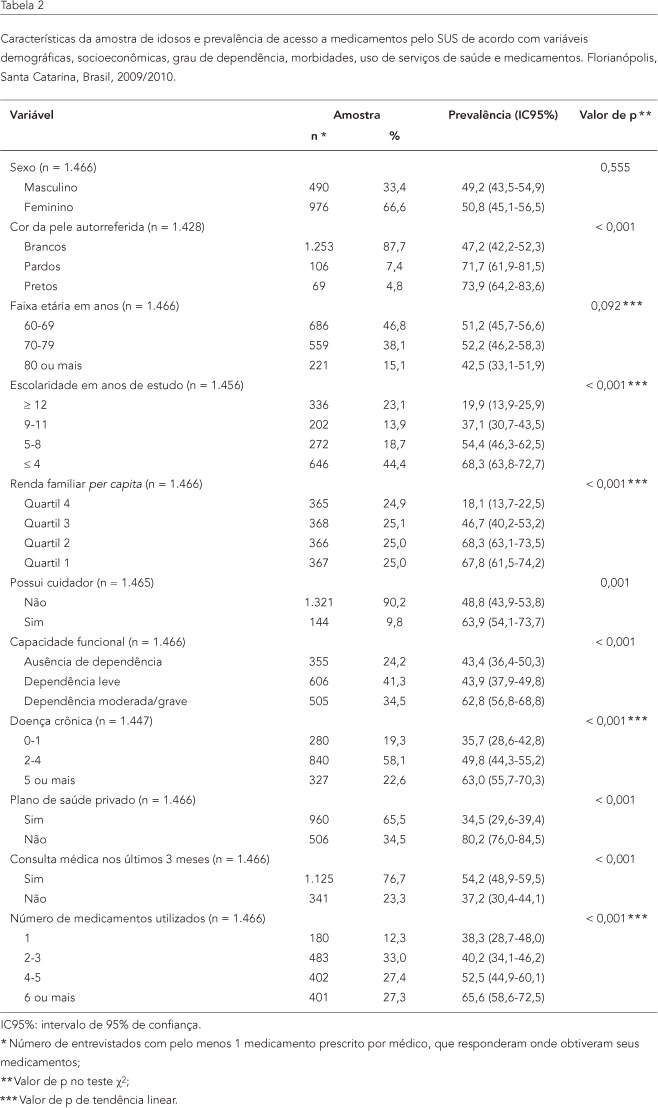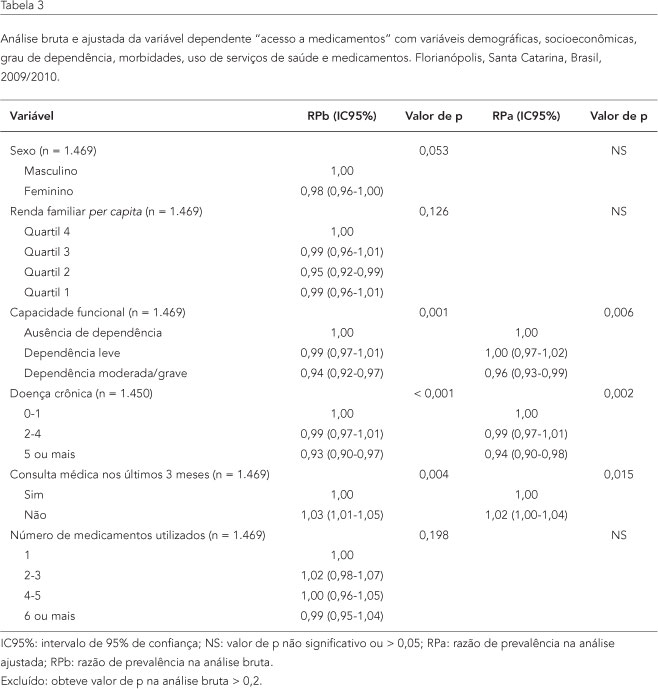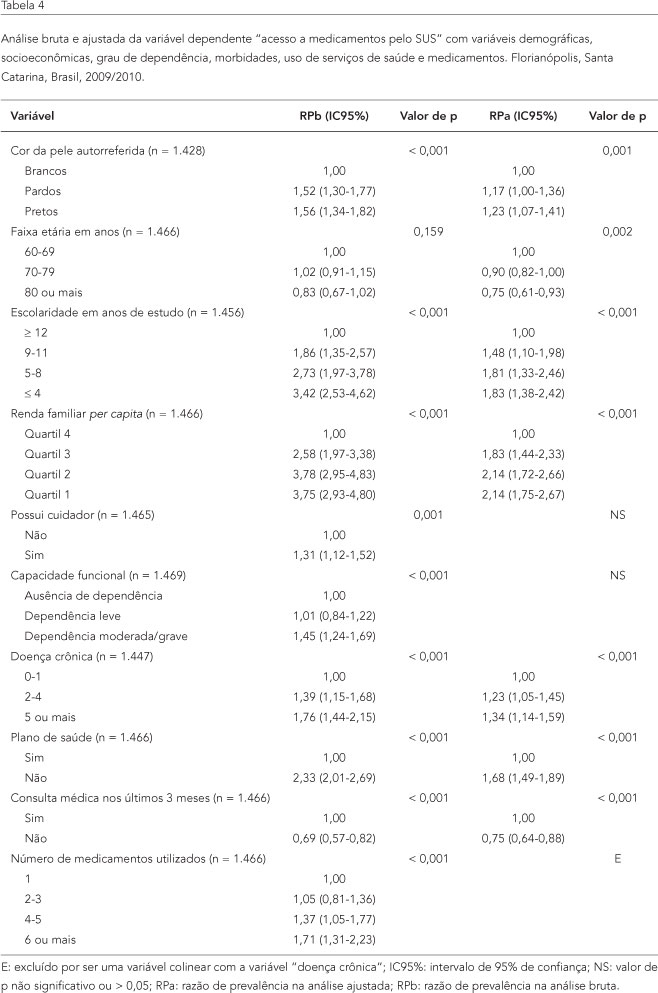This study aimed to describe the prevalence of access to prescription drugs for the elderly and associated factors in Florianópolis, Santa Catarina State, Brazil. A cross-sectional population-based household survey was performed in a sample of 1,469 individuals (non-response rate: 10.8%). The data were analyzed with Poisson regression, from two perspectives: access to medicines in general and access to medicines through the Unified National Health System (SUS). The results were, respectively, 95.8% (95%CI: 94.7-96.8) and 50.3% (95%CI: 47.7-52.8). Lower access to medicines was associated with functional dependence, chronic illness, and at least one medical visit in the previous three months. Access to medicines through the National Health System was associated with black or mixed race, younger age, lower schooling, lower income, more chronic diseases, lack of private health insurance, and at least one medical visit in the previous three months. The results show that the National Health System has been successful in promoting universal access to medicines in Florianópolis.
Aged; Health Services Accessibility; Drug Utilization; Unified Health System; Cross-Sectional Studies




